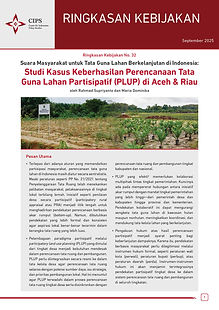Reducing the Financial Burden of Indonesian Migrant Workers

Penulis

Arianto Patunru

Rofi Uddarojat
This paper provides policy recommendations to support safer means for Indonesian migrant workers to access income opportunities through overseas employment. The paper analyses the economic impacts of government’s 2015 moratorium that bans Indonesian domestic workers from working in 21 countries in the Middle East that was placed in response to reports of violence and sexual abuse directed at Indonesian migrant workers abroad.
Migrant workers, the majority of whom are women, have sent an estimated USD 8 billion back to their households in the form of remittances. These remittances have contributed to the lowering of Indonesia’s poverty rate by 26.7% between 2000 to 2007. While a well-intentioned measure aimed to support the safety of migrants, the moratorium cuts the flow of remittances that low-income and rural households have previously relied on. In addition, Indonesians without alternative income sources have found ways to migrate though illegal channels, placing their safety in the hands of human traffickers.













































